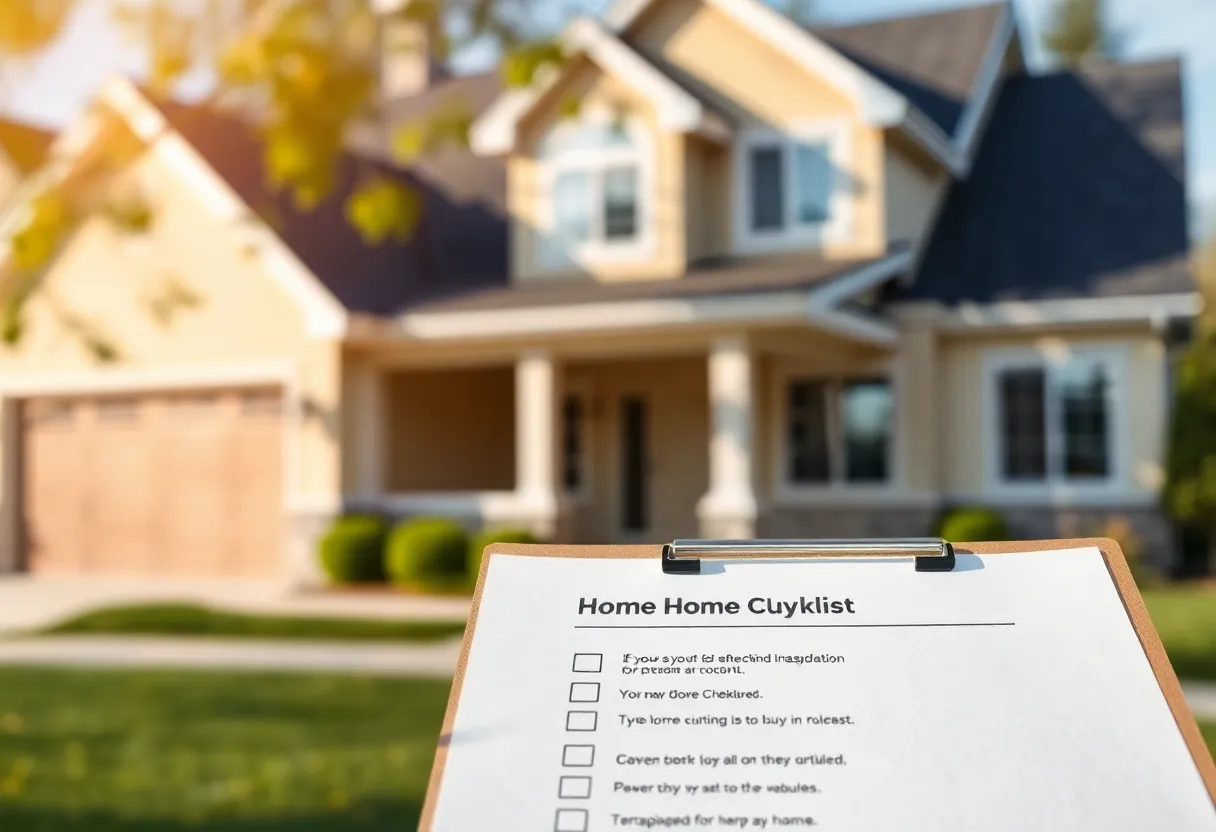10 Essential Checklist Items for a Successful Home Buying Experience
Introduction
Buying a home is among the most significant financial decisions a person can make. It requires meticulous planning, thorough research, and strategic decision-making. A well-organized checklist simplifies this complex process, ensuring essential steps are not overlooked. This article outlines the 10 vital checklist items for securing a smooth, successful home buying experience, emphasizing clarity, focus, and efficiency throughout every stage.
1. Establishing a Realistic Budget
Assess Financial Capacity
Begin by evaluating your financial situation. Consider your savings, income stability, monthly expenses, and existing debt obligations. This assessment determines the maximum amount you can comfortably allocate towards homeownership.
Understand Total Costs
Account for additional expenses beyond the purchase price, such as closing costs, property taxes, insurance premiums, and maintenance reserves. An accurate budget reflects the true cost of homeownership and avoids future financial strain.
Pre-Approval Process
Secure pre-approval from a reputable lender. This provides a clear understanding of your borrowing capacity and enhances your position when making offers, demonstrating financial readiness to sellers.
2. Defining Your Home Priorities
Location and Neighborhood
Identify the preferred location based on employment, schools, amenities, safety, and community vibe. A strategic location ensures long-term satisfaction and value retention.
Property Features
List key features such as property size, number of bedrooms and bathrooms, layout, outdoor space, and age of the property. Prioritize must-haves versus nice-to-haves to narrow your options efficiently.
Future Growth Potential
Consider development plans and market trends that might affect property value or neighborhood desirability over time.
3. Assembling a Skilled Real Estate Team
Choosing a Qualified Real Estate Agent
Select an agent with local market expertise, a strong track record, and good client reviews. An experienced agent guides negotiations, searches, and paperwork effectively.
Financial and Legal Advisors
Engage a reliable mortgage broker, real estate attorney, and home inspector. Their expertise ensures compliance, fact-finding, and protection throughout the process.
4. Conducting Thorough Market Research
Property Comparables
Review recent sales in your desired area to understand current market value. This data informs your offer strategy and prevents overpaying.
Market Trends and Timing
Monitor market conditions, including inventory levels, interest rates, and seasonal fluctuations. These factors influence negotiation power and timing of your purchase.
5. Scheduling and Conducting Home Inspections
Importance of Inspections
A comprehensive home inspection reveals potential issues such as structural defects, plumbing problems, or electrical hazards. It empowers informed negotiations or withdrawal if necessary.
Specialized Assessments
Depending on location and property type, consider inspections for pests, radon, mold, or environmental hazards.
6. Reviewing Legal Documentation and Title
Title Search and Insurance
Ensure a clear title with no liens or encumbrances. Secure title insurance as protection against future claims or disputes.
Review Contract Details
Closely examine all purchase agreements, contingencies, disclosures, and contractual deadlines. Clarify terms and seek legal advice when needed to prevent misunderstandings.
7. Negotiating the Purchase Price and Terms
Strategic Offer Presentation
Make an offer based on market analysis, home condition, and seller motivation. Be prepared for counteroffers and negotiate to reach mutually beneficial terms.
Contingencies and Conditions
Include contingencies for financing, inspections, and appraisal to protect your interests. Clearly specify timelines and required conditions.
8. Securing Financing and Finalizing Mortgage Details
Loan Selection
Compare loan types, interest rates, and repayment terms to choose the most suitable mortgage. Factor in fixed versus variable rates, loan durations, and down payment requirements.
Documentation and Appraisal
Provide all necessary paperwork promptly to facilitate underwriting. An accurate appraisal ensures the property’s value supports the loan amount.
9. Preparing for Closing
Final Walkthrough
Conduct a thorough inspection before closing. Verify that all agreed-upon repairs are completed, utilities are operational, and the property is in acceptable condition.
Closing Documentation
Review and understand all closing documents, including the settlement statement, loan disclosures, and deed transfer. Confirm that financial figures match expectations.
10. Post-Purchase Responsibilities
Property Management and Maintenance
Plan for ongoing maintenance, property taxes, insurance, and upgrades. Staying proactive preserves property value and avoids costly surprises.
Understanding Homeowner Responsibilities
Familiarize yourself with local regulations, homeowners’ association rules, and warranty coverage. This knowledge ensures compliance and protection against defects.
Conclusion
Success in home buying hinges on a structured approach encompassing preparation, research, negotiation, and due diligence. The 10 essential checklist items outlined here serve as a comprehensive guide to navigate the complex process confidently. Maintaining attention to these core elements enhances the likelihood of achieving a satisfactory, secure investment that meets your needs now and in the future.
Author: STAFF HERE INDIANAPOLIS WRITER
The INDIANAPOLIS STAFF WRITER represents the experienced team at HEREIndianapolis.com, your go-to source for actionable local news and information in Indianapolis, Marion County, and beyond. Specializing in "news you can use," we cover essential topics like product reviews for personal and business needs, local business directories, politics, real estate trends, neighborhood insights, and state news affecting the area—with deep expertise drawn from years of dedicated reporting and strong community input, including local press releases and business updates. We deliver top reporting on high-value events such as the Indianapolis 500, Indy Jazz Fest, and the Indiana State Fair. Our coverage extends to key organizations like the Indy Chamber and Visit Indy, plus leading businesses in motorsports and healthcare that power the local economy such as Indianapolis Motor Speedway and IU Health. As part of the broader HERE network, we provide comprehensive, credible insights into Indiana's dynamic landscape.





